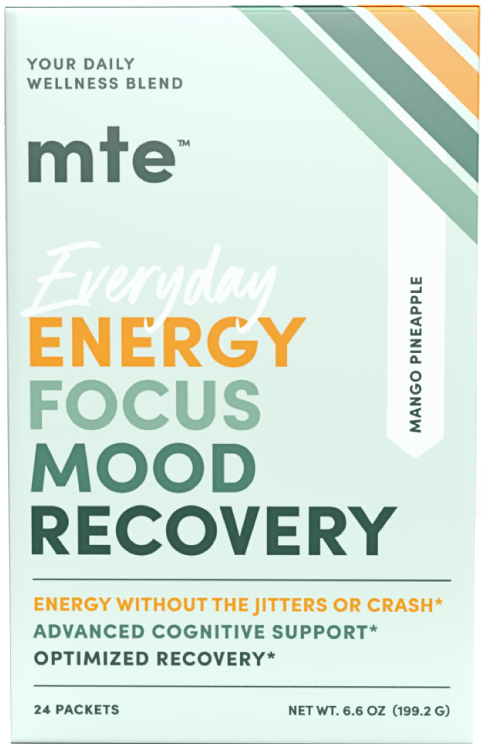
Quell the Struggles of Quitting with Adaptogens & Nootropics
Anyone who’s ever tried to quit coffee, nicotine, alcohol – any substance, really – knows the absolute nightmare that is detox. The withdrawal is real. You’re angry, overreactive, full of headaches, maybe nauseous – it’s no wonder it’s so difficult to successfully quit an addictive substance.
Unfortunately, many of the medical interventions that help people quit pose their own dangers – they’re the lesser of two evils, not a fully-safe solution. Consider nicotine lozenges/patches/vapes/you name it for nicotine addiction. Are you ridding yourself of a dangerous habit? Kind of. Have you rid yourself of an addiction? No.
So, what is it about quitting that makes those first few weeks a gauntlet of feeling like a garbage fire? And are there safe, natural ways to support against the worst parts of withdrawal? One thing about the withdrawal stage of quitting caffeine or nicotine is the feeling of being out of control. Knowing why you feel how you feel, and having tools to help manage it, might have a really positive impact on your state of mind!
Case Study: Nicotine Use in the US
Let’s use nicotine addiction as the case study for this discussion. It’s never been more relevant – it seems there’s a vape shop on every corner. E-cigarettes made smoking less stigmatized, and nicotine products like gum and patches made it easier to completely cut cigarettes without going cold turkey. And it’s been a little crazy – how these were marketed as ways to cut down/quit nicotine, but they often do the opposite.
According to the CDC, about 20% of US adults use some kind of tobacco product. Tobacco-related deaths in the US are near half a million each year. At the same time, 16 million people are living with a serious tobacco-related illness. And what’s so much worse now that vapes are being marketed to the younger demographics: an estimated 8 million kids aged 12-18 use some kind of tobacco product.
But! People are trying to quit, and in droves. Nearly 70% of adults and 65% of kids who smoke report actively wanting to quit. Each year, 55% of smokers try to quit. Sadly, only about 8% of them succeed. Long-term stats are more hopeful, as about 60% of adults who had ever smoked have quit. Since 2002, there have been more former smokers than current smokers in the US population.
Why Nicotine is So Addictive
Detox and withdrawal are unequivocally awful. And hard! That 8% isn’t because people aren’t trying – it’s because what nicotine has done to your brain and body takes time to reverse. Withdrawal symptoms are relatively universal: fatigue, low mood, high stress, poor sleep, a feeling of fogginess – throw some nausea and a throbbing headache in there and you’ve got the makings of some pretty difficult days.
So, what’s going on in the body when you’re sitting at your desk cold-sweat-jonesing for that 10am cig?
When you consume nicotine, it reaches your brain in seconds, where it binds to nicotine receptors, which then trigger the release of the brain's main reward chemical. This causes a rush of nice feelings, calm and security, which is why consuming nicotine is so satisfying. And so addictive. You’re basically using one drug to poke your brain’s reward system until it releases another drug.
This “poking” process gets ugly over time, as your body becomes more and more tolerant of that rewarding rush. It’s less of a rush each time. That leads to more cigs, vaping more often, chewing more gum. It also leads to low levels of reward chemicals when you’re not consuming nicotine, which is then another reason you’ll want to reach for another cigarette.
Why Detox is So Difficult
So, now you’ve taught your brain that (a) it doesn’t need to deal with stress on its own, (b) it needs a lot of that reward hormone to feel good, and (c) nicotine, in any form = immediate happy. In addition, there’s the psychology of it all: many people smoke to deal with difficult or stressful moments. Others use it as a comforting social habit, and others use it to help zone in and concentrate.
In fact, even though nicotine excites the nervous system it’s been shown that in people with certain psychological ailments that nicotine actually relaxes them, which is why smoking rates are even higher in those populations.
When you stop consuming an addictive substance like nicotine, your brain freaks out. It no longer has the resources, or its original neural pathways, to snap back to regular neurochemical activity and balance. Plus, it’s now resistant to reward chemicals at low levels. This leads to those ubiquitous withdrawal symptoms.
Basically, your brain can’t figure out how to regulate; it knows that nicotine can accomplish that for it; it wants more nicotine. It screams to your mind and your central nervous system over and over, “PLEASE, THOUGH”, which is why the first few weeks to months of quitting is so hard. Your brain literally has to relearn how to perform a natural function without the help of the substance.
How Adaptogens Help Your Body Overcome Stress & Fatigue
A big obstacle to quitting is the physical and mental stress you have to overcome to get through those initial waves. You have to rehabituate how you think and how you deal with stressful moments while riding out the physical manifestations of detox stress like jitters, cold sweats, headaches. Many people go through this part without help, which is why it often takes more than one quitting attempt to fully shake something as addictive as nicotine.
A natural way to promote calmness is a greens supplement with an adaptogen stack. Adaptogens are bioactive plant-derived compounds that, with regular use, promote CNS homeostasis while helping the mind and body adapt to stress.
With regard to physical experiences associated with quitting nicotine, adaptogens have antioxidant properties that help with cellular scavenging and detox. They support anti-inflammatory pathways that can take some stress off your immune system. They promote protection from oxidative damage, support for the cardiovascular system, and restoration to healthy energy levels.
With regard to psychological effects, some adaptogens have proven in clinical settings to be as effective as common prescription medications for intense stress. Many adaptogens support activity of the specific neurotransmitters associated with learning, memory, motivation, mood, and pleasure.
A few adaptogens that might be particularly helpful for stress-induced withdrawal symptoms include:
- Ashwagandha: supports stress resilience, energy, focus, calm
- Eleuthero: promotes nerve health, immunity, energy
- Holy Basil: supports immune function, energy levels, stress resilience
- Maca: promotes endurance, energy, brain function
- Chicory root: promotes gut health, blood sugar, inflammation, stress response
How Nootropics Promote Mood & Mental Clarity
The other side of the same coin is the state of mind withdrawal puts you in. Irritable, stressed, foggy, forgetful – you might not recognize your own personality for a few weeks. Pushing through these feelings is difficult, especially when your brain has been rewired to know there’s an instantaneous solution: that nicotine you’re trying to quit.
Nootropics are a class of plant-derived compounds that are known to protect and promote brain health. They work with your brain’s neural processes to bring neurotransmitters, hormones and other chemicals back into balance.
Some nootropics that are helpful for restoring a clear, tranquil, positive vibe include:
- GABA: promotes balanced mood, nightly recovery
- L-theanine: supports calm concentration, recovery, immunity
- Theacrine: promotes tranquil energy, mood, anti-inflammation
- Saffron: supports mood, memory, brain health
- Green tea: promotes energy, focus, motivation
- Methylliberine: supports energy, focus, mood
How MTE’s Formulation Helps Restore Energy, Mood & More
Because stress, energy, mood, and focus are all interconnected, propping up one or two also elevates the others. It make sense – the body is comprised of countless systems communicating with each other in intricate, complex ways. MTE was formulated to offer comprehensive support that also offers a boost of energy.
Feeling foggy, fatigued and really irritated are just the reality of going through withdrawal. And it’s clear we can’t be reaching for another habituating substance and relying on that to get us through it – you’ll just move from one dependence to another.
MTE’s mix of 13 adaptogens, nootropics and superfoods can help you ride out those nasty experiences and maybe even offer some relief. The calm, zoned-in energy a daily drink of MTE’s greens supplement provides supports against problems like:
- Tiredness
- Low mood
- High stress
- Restlessness
- Inflammation
We promote energy by supporting cell nutrition and neurotransmitter pathways that control higher order processes and your perception of daily life. This is different than a boost from a stimulant: we’re not signaling a stress response for no reason, which means no jitters or crash, and it also means no tolerance or dependence. MTE might be a good option for someone looking for an alternative to energy drinks to get them through the exhaustion of quitting tobacco.
Optimizing your body’s functions and giving it the things it needs to be its best will help quitting be… the best it can be?
Still terrible – but maybe not as much!
Other Tips for Getting Past the Initial Hit of Quitting
In addition to adding a clean, healthy energy supplement to help fight that fatigued, fuzzy feeling you get when trying to quit a substance, there are self-care measures you can take. Will it make the process not suck? Probably not. But every little thing helps when you’re doing something difficult to improve your life.
- Mindfulness: Simply taking time to listen to your mind and body creates an awareness that can make you feel less out-of-control during the ups and downs of quitting.
- Healthy eating: Not only does a nutrient-dense diet do the body and mind good – it can help ease effects that might be exacerbated by nutritional imbalances. For instance, high sugar intake can contribute to headaches.
- Drink water: All the time. Staying hydrated does a lot, including maintaining metabolic function, protecting cell health and promoting clarity. Staying well-hydrated also helps your body clear out bad stuff.
- Exercise: There’s never a bad time to add exercise to your daily routine. Not only can regular exercise help restore some things that may have been hurt/damaged by a use problem, but it promotes self-efficacy, brain function and musculoskeletal health.
It’s important to note that professional intervention is a natural and necessary path for many people who are trying to kick a harmful substance. For more resources on finding help with addiction, visit:



